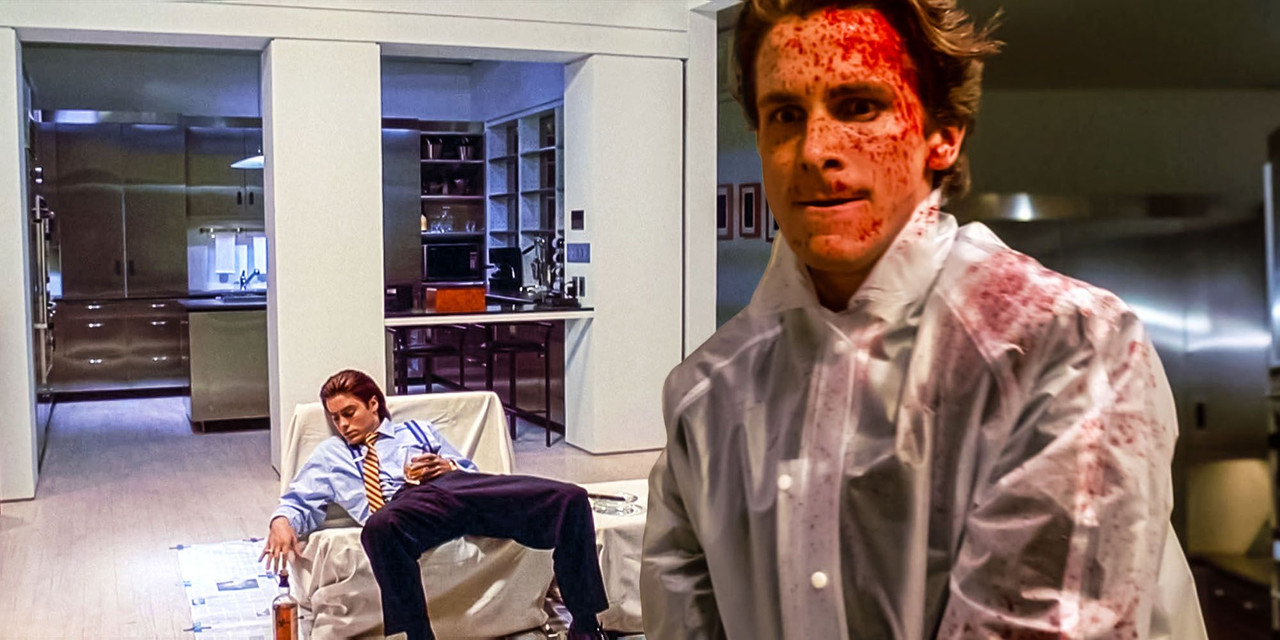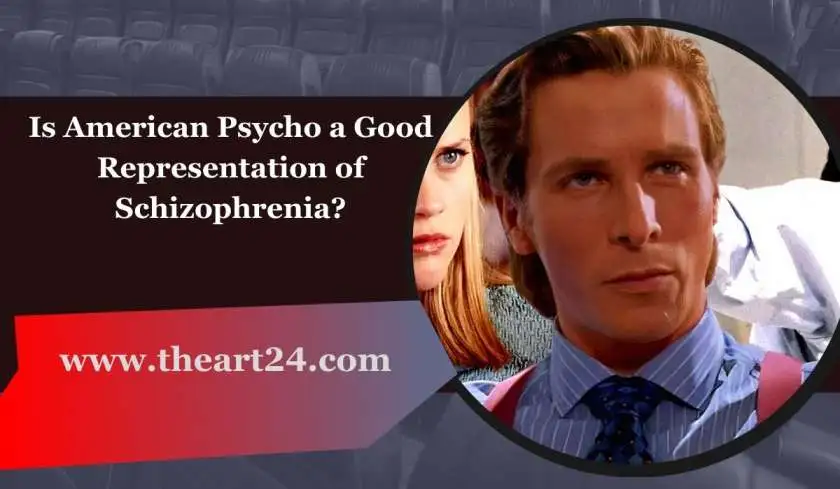Is American Psycho a good representation of schizophrenia? The genuine importance of American Psycho is difficult to make sense of, as the film's profoundly maniacal hero and questionable closure make its general message fairly hard to disentangle.
In light of the 1991 Bret Easton Ellis novel, American Psycho follows New York venture financier and uncontrolled chronic executioner Patrick Bateman. Christian Bunch's presentation as Patrick Bateman is famous and has gotten American Psycho a faction following that has persevered more than twenty years. Patrick Bateman reveals his most brutal desires in American Psycho, following up on each cruel drive with next to no outcome in his Money Road life.
The film was just as disputable as Ellis' novel, little amazement when Ellis himself considered the scholarly Bateman's plummet into debasement and genuine franticness excessively surprising for film. American Psycho comes full circle on an emphatically vague note.
Which calls a significant number of the past occasions of the story into question. Numerous watchers reach the resolution. American Psycho utilized the frequently lamented "it was every one of the a fantasy" figure of speech. Be that as it may, Chief Mary Harron expressed in any case. All things being equal, American Psycho made sense of Bateman's real essence, rewording the whole story in another light, regardless of whether it is barely noticeable.
Is American Psycho a Good Representation of Schizophrenia?

American Psycho Uses Real Violence As A Stand-In For Corporate Greed
American Psycho's significance is a discourse on the innate viciousness of corporate eagerness. Christian Bundle's film jobs are painstakingly picked, and he has an inclination for stories that dive profoundly into human instinct. Patrick Bateman's relaxed remorselessness and rough perversion are key components of his portrayal and why he's a particularly social symbol.
Read Also: A Tribute to the Talented Actors of PS I Love You
The gore he causes is an immediate illustration of the American Psycho making sense of representation brutality as a substitute for corporate eagerness. The homicide binge in American Psycho begins with Bateman being specific and purposeful; however, it heightens for progressively unimportant reasons.
This straightforwardly matches the unfeeling corporate savagery Bateman sanctions spontaneously and consistently on Money Road, settling on choices that cause monetary ruin for others just to boast in the meeting room. American Psycho made sense of the fact that its savagery addresses wildly spiraling eagerness.
Bateman's bloodlust is as voracious as his partners' hunger for benefit. His homicide of Paul Allen is a critical piece of proof for this, as it addresses Bateman's readiness to excel by killing his partners. Bateman pulls off his activities, demonstrating the detachment that others in his groups of friends feel towards that degree of brutality.
On a shallow level, the brutality of American Psycho might appear to be over the top and unnecessary where the story's concerned; however, the viciousness is so extreme and goes to a great extent inconspicuous that it hits on the idiocy of Bateman's twistedness and, in this manner, the silliness of genuine Money Road's.
Through its splendid artistic account, American Psycho shows genuine corporate eagerness through the significantly more instinctive and appealing components of crude, unhinged savagery. Prominently, forsaking these convincing subjects is the reason the spin-off American Psycho 2: All American Young Lady didn't work out quite as well as the film.
American Psycho Is Actually About Patrick Bateman's Moral Awakening

What's more subtle is that American Psycho is about Patrick Bateman acquiring—not losing—his ethical lucidity. After Bateman murders his colleague, Paul Allen, American Psycho makes sense of that Bateman's hold on his twofold life starts to disentangle, as the cover between his two personas starts to slip.
As this takes steps to consume Bateman altogether, American Psycho closes with him endeavoring to drive others to consider him responsible for his activities. Without a doubt, obviously the film's story follows Bateman as he figures out the individual he has become. Is American Psycho a good representation of schizophrenia?
Read Also: The Bold and the Beautiful Spoilers for Next Week
At the point when he can never again contain the relaxed savagery of his secret persona, his life starts to self-destruct, albeit none of his partners appear to mind one more second of American Psycho's subject of corporate hardness.
The bodies vanishing from Paul's condo in the American Psycho movie show that the world around Patrick couldn't care less about his activities, even as he endeavors to tell the truth. Bateman recovers his faculties while the world remains unaware of its own ravenousness and defilement.
Patrick Bateman Is Meant To Be An Unreliable Narrator (Because Of His Identity Crisis)
Perhaps one of the most widely recognized misjudgments about American Psycho originates from its equivocal closure, painting Patrick Bateman as a questionable storyteller. In any case, the way that the completion raises doubt about Bateman's uprightness is the very point, as it takes care of one of the film's most reliable topics: personality.
A vital piece of proof for this is during American Psycho's mixed-up personality scene when Paul mistakes Bateman for Marcus Halberstram, setting off the fierce homicide of Paul Allen (and Bateman's ensuing moral arousal).
American Psycho shows that Bateman is in the pains of a character emergency additionally fits with the film's message about voracity. However, Bateman has been partaking in the rich way of life his own covetousness and defilement have gotten him; at this point, he's not certain precisely what his identity is.
This character's emergency is at the center of his psychosis, and however it makes him a questionable storyteller, it isn't guaranteed to do so in the manner that the most well-known understanding of American Psycho's consummation would recommend.
Why American Psycho's Ambiguous Ending Doesn't Matter
The closure of the film is intentionally vague. The deeper significance of American Psycho wouldn't be such an idea on the off chance that it wasn't, all things considered.
Be that as it may, it's not expected to raise doubt about Bateman's activities, but rather about his thought processes. One reason that American Psycho gets better after rewatching is that the better subtleties point towards an undeniably seriously fulfilling end: the vagueness of the closure is the very point.
In American Psycho, Patrick Bateman is a problematic storyteller, so it's not difficult to accept that the homicides didn't occur. All things considered, the closure ought to raise doubt about why no other person is tending to Bateman's upsetting remarks, and that is where its genuine uncertainty comes in.
The way that Bateman's companions and partners are generally not able to engage his confirmation of responsibility as serious is proof that they are, however problematic as he may be, and that American Psycho's characters are just as blameworthy as Bateman.
Misinterpreting American Psycho May Be Fueling Extremism
American Psycho's prosperity has brought up issues about whether Patrick Bateman's personality really filled radicalism, a worry that frequently emerges when a film unpredictably looks at ethical quality involving brutality as a focal point.

American Psycho was delivered back in 2000, and it's fascinating how many years after the fact, motion pictures like the disputable 2010s film Joker actually need to handle similar issues (and rebuke a similar study).
Related Post: Watch House of the Dragon Season 2 Online 2024
Like Joker chief Todd Phillips, American Psycho chief Mary Harron has needed to manage the disputable crowd and basic gathering, yet also the likelihood that misinterpretations about the film could be supporting anti-social developments and philosophies.
Harron made sense of (through Vulture) how Bateman and the Joker, both unbelievably vicious mental cases, are so effective in light of the fact that they normally set crowds in an awkward position. As Harron said:
While American psycho hi fi system and comparative motion pictures like Joker and Battle Club study manly harmfulness, it's plain they can coincidentally rouse these equivalent enemy of social components in the public arena.
Tragically, it appears to be that American Psycho made sense of Patrick Bateman's insane skepticism as charming by a few staggeringly lost people as a yearning, as opposed to an advance notice. All things considered, very much like how the contention about Joker and Battle Club really assisted in setting up these motion pictures, the social reactions with doing something similar for American Psycho.
While the notorious status of these films is merited, especially due to how their separate debates uncover how profoundly they tap into human instinct, it's as yet worth looking at how these exceptionally powerful social items can change individuals' activities and perspectives.
Maybe future motion pictures like American Psycho ought to accompany an unmistakable disclaimer that it's an evaluation of the ways of behaving shown and not a support. Regardless of whether Patrick Bateman has motivated genuine radicalism, however, the shortcoming doesn't lie with Chief Mary Harron or the actual film; no film is answerable for genuine brutality.
What Christian Bale Thinks Of American Psycho's True Meaning?
American Psycho made sense of a portion of Bateman's most disagreeable perspectives and practices, yet what is Christian Bunch's take of his job as the notorious person? Plunking down with GQ, Bunch examined a portion of his most productive acting jobs, Patrick Bateman came up. The psycho by Alfred Hitchcock citation APA.
To plan for the job, Bunch invested some energy in Money Road at the New York City stock trade and got to encounter what it resembled on the exchanging floor. He had different discussions with the men that American Psycho should portray, and a portion of their remarks ended up being disturbing.
Trending Article: Harold and the Purple Crayon Movie Release Date 2024
The comments of these people are unquestionably troubling. American Psycho was intended to evaluate poisonous manliness, and Patrick Bateman was never intended to be a thoughtful person. Is American Psycho a good representation of schizophrenia?
The way that individuals in, important, influential places and opulence could identify and try and "love" Bateman's personality demonstrates that there's a bigger issue underneath the surface. While individuals on the exchanging floor that Parcel met may find something positive in Bateman's personality, basically The Dim Knight entertainer comprehends what Patrick Bateman from American Psycho should address.
How The American Psycho Meaning Compares To The Book?
The American Psycho movie and novel differed in a number of ways, some of which altered the meaning of the book. The majority of the murders in the film took place in Patrick Bateman's personal life and the business world. In this article! To know more information about the psycho by Alfred Hitchcock citation APA.
But Bateman is more ruthless in the book and frequently murders people who are unrelated to the issues of corporate greed and his own loneliness. He murders a man who approaches him in Central Park at one point in the book. In addition to killing the man due to his sexual orientation, he also kills the man's dog.
The murder of a small child at the zoo is one of the book's unsettling scenes. Bateman enjoys the moment as he cuts the boy's neck in the novel. He later feels guilty for killing someone who didn't really make any faults, though.
His remorse for a kill that violated the entire mantra gave the impression that he was killing people who deserved it. He changed the meaning of American Psycho to something more darker by killing over fifty people in the novel and 23 in the movie.
Does the American Psycho Sequel Affect How the First Movie Ends?
Two years after the first American Psycho film was a great hit, a little-known sequel was released in 2002. Bret Easton Ellis, the author, criticized the second film, which went straight to video and had nothing to do with Patrick Bateman. Although the film made reference to Patrick Bateman, it has largely been forgotten over time, and Mila Kunis played the new killer. Mila Kunis has since made fun of the film, seemingly embarrassed by it.
Related Article: What Entertainment Tonight Near Albuquerque?
This indicates unequivocally that Mila Kinis was creating a stand-alone suspense film, but the producers chose to postpone the release and market it as a sequel. Is American psycho a good representation of schizophrenia?
The first American Psycho's confusing conclusion is destroyed in this film, which claims that Patrick Bateman was a serial killer from the beginning. In a flashback, Kunis's character's babysitter is killed by Patrick Bateman, who then dissects her body. In addition to escaping, Kunis's character develops into a serial killer.
In fact, Patrick Bateman's character suffers because of this moment. Based on the yuppie business-centric plots of that first film, he killed people. This demonstrates that he was only a simple serial killer who even preyed on babysitters.
Which is not Bateman's specialty. Unfortunately, Lionsgate stated that the film is an officially sanctioned sequel, making it legit. It also utterly destroys the conclusion of American Psycho and the storyline of Patrick Bateman, the murderer.







